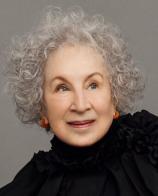Reading Group Guide
Discussion Questions
Alias Grace

1. This novel is rooted in physical reality, on one hand, and floats free of it on the other, as Atwood describes physical things in either organic, raw terms (the "tongue-colored settee") or with otherworldly, more ephemeral images (the laundry like "angels rejoicing, although without any heads"). How do such descriptions deepen and reinforce the themes in the novel?
2. The daily and seasonal rhythm of household work is described in detail. What role does this play in the novel in regard to its pace?
3. What was your view of Mary Whitney before you met her in chapter 18? During the time she was working with Grace at Mrs. Alderman Parkinson's? When you hear of her again? Do the earliest references and asides about her illuminate her role in the novel later?
4. Atwood employs two main points of view and voices in the novel. Do you trust one more than the other? As the story progresses, does Grace's voice (in dialogue) in Simon's part of the story change? If yes, how and why?
5. Grace's and Simon's stories are linked and they have a kinship on surface and deeper levels. For instance, they both eavesdrop or spy as children, and later, each stays in a house that would have been better left sooner or not entered at all. Discuss other similarities or differences in the twining of their stories and their psyches.
6. Discuss the importance and use of dreams in the novel.
7. Atwood offers a vision of the dual nature of people, houses, appearances, and more. Discuss these manifestations of dark and light that are at bedrock in this novel.
8. Discuss how Atwood foreshadows certain events by dropping clues throughout the novel. Did you find key events surprising and inevitable?
9. In a letter to his friend Dr. Edward Murchie, Simon Jordan writes that "...Not to know--to snatch at hints and portents, at intimations, at tantalizing whispers--it is as bad as being haunted..." How are the characters in this story affected by the things they don't know?
10. Were you of the same mind regarding Grace's innocence or guilt throughout the novel? At what points did you waver one way or the other?
11. Did any character in the novel freely choose his or her course of action?
12. Why do you suppose the book is titled Alias Grace?
Alias Grace
- Publication Date: October 13, 1997
- Paperback: 480 pages
- Publisher: Anchor
- ISBN-10: 0385490445
- ISBN-13: 9780385490443








